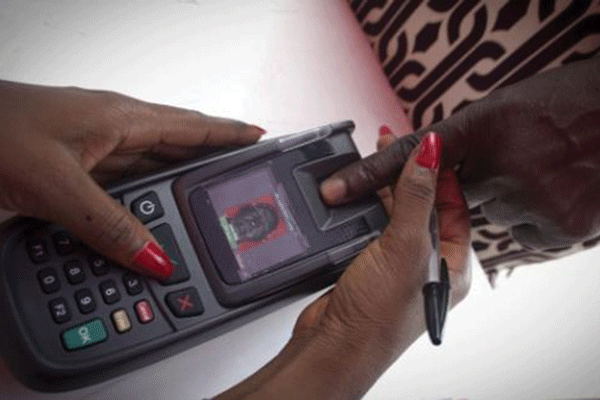Given the logistical challenges people face when registering to vote, Edwin Mushoriwa, a Dzivaresekwa MP, has proposed that some of the powers delegated to the Zimbabwe Electoral Commission (ZEC) on voter registration be returned to the Registrar General (RG)’s office so the registry can automatically register voters when they reach the age of 18.
However, analysts believe lack of transparency in Zimbabwean registration procedures is a problem that must be addressed so whoever is tasked with running voter registration must be transparent, accountable and have effective administration.
Prior to 2004, the RG’s office used to register voters in between elections, in addition to its usual tasks of registering or documenting births, issuing national identity cards and death certificates.
The RG’s office also organised and conducted elections, but that function was discontinued following the establishment of ZEC to remove the election execution from civil servants and place it in the hands of a professional body independent of government control.
ZEC is now in charge of overseeing voter registration and compiling voter rolls..
“I am aware that there is a challenge in terms of the powers of the RG vis-a-vis, the powers of ZEC but I actually believe that we need to make sure that we take some of the powers that we had given ZEC and give it back to the RG so that there is an automatic registration of voters once they attain the age of voting, which is 18 years so that at least we do not have a problem that we currently have,” Mushoriwa said while discussing the Electoral Amendment Bill in Parliament.
According to the legislator, logistical challenges make it difficult for people to register and vote, while ZEC does not have offices in each constituency in the country.
“If you go and check and it is across the political divide, people are finding it difficult; if you go to, especially in Harare, you go to Makombe, go to Cecil House, there are long queues of people trying to register to vote. We are aware that ZEC may not have their offices open in each and every constituency but if we do an automatic registration, it would actually help,” Mushoriwa said.
The need to decentralise and bring voter registration centres closer to communities is a challenge that was also noted by political activists and civic society organisations, such as the Zimbabwe Electoral Support Network (ZESN), have noted.
Citizens also expressed concern about the accessibility of ZEC registration centres, which are not conveniently located, causing some people to travel long distances to register to vote.
For instance, in Bulawayo, ZEC offices are located in Famona Suburb, which is out of the city centre.
A political analyst, Bernard Magugu, weighed in on the issue in an interview with CITE, saying the challenge in Zimbabwean systems was lack of transparency, citing the opaqueness of the voter registration process as the catalyst for the establishment of ZEC.
Even now, people face the same lack of transparency with ZEC, according to Magugu, where “there are still errors such as name duplication and recent delimitation changes that have people confused.”
“When the RG’s office was in charge, there was concern that it was deliberately manipulating the voters’ roll to the advantage of Zanu PF, which is still the case now with ZEC,” he said.
On the other hand, Dr Khanyile Mlotshwa, stated if voter registration should be a continuous process, “ it would have been better if it stayed at the RG’s office.”
“ZEC should just run elections and not be in charge of the voters’ roll,” he noted

